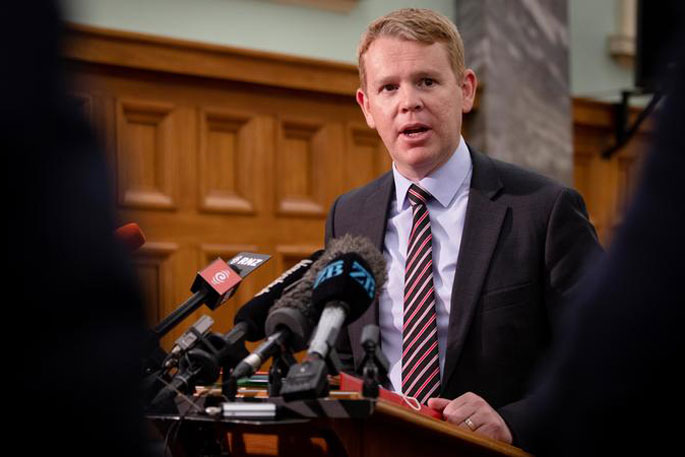Health authorities are still trying to determine the risk to Christchurch of two new community cases of Covid-19 there, and a snap lockdown is not being ruled out.
Covid-19 Response Minister Chris Hipkins is expecting to receive a public health risk assessment on the cases later this morning, which will allow a quick decision about a potential lockdown, possibly at today's 1pm briefing.
The two cases are from the same household, are not vaccinated, and their use of the Covid-19 Tracer app has been low.
They have been in Christchurch for up to a week after one travelled back from Auckland. They had a negative test result prior to that travel as required but later tested positive.
At this stage, there are no other known household contacts for the pair.
Hipkins told Morning Report "The nature of their contacts in Christchurch will be established during the morning and then we'll have a bit more information to share, but you know, these cases came in quite late last night.
"My understanding is that they've been unwell for a while so they could have been symptomatic and infectious for a period of time whilst back in Christchurch and so that's one of the things that the contact tracers will be working on as a as a top priority this morning - to identify exactly what the nature of the potential exposure in Christchurch is."
It was not yet clear how many locations of interest there might be.
"As of last night that identified one other household so far that the person had had contact with ... but we'll know more within the next few hours, hopefully."
The impact of their low use of the Covid Tracer app "ultimately would depend on exactly how much they've been out in the community, you know if they've been unwell, they may well have been staying at home for much of that period of time.
"If they have had a significant amount of movement within the community, and then the fact that they haven't kept records does make that more challenging because human nature is everybody will forget things."
The pair seemed to be co-operating with authorities so far, he says.
There was not enough information available yet to make a call on a snap lockdown, Hipkins says.
"We will know by later in the morning this morning what we're dealing with in Christchurch. At this point we're still just waiting to get more information there... I'm expecting to receive the public health risk assessment on these particular cases later on this morning, and that will allow us to make it speedy decision about anything any follow up that's required in Christchurch.
"I couldn't make a judgement at this point as to what follow up will will be required."
According to Canterbury DHB figures, 89 per cent of people in the region have received their first dose and 68 per cent are fully vaccinated.
Hipkins says this is good.
"Once you get up to those sorts of rates, that does start to have an impact on the spread of the virus."
But the cases illustrated why there were still restrictions in the South Island, he says.
Epidemiologist professor Michael Baker says the new Christchurch cases were expected but nonetheless concerning.
"Some people felt there was some inevitability about this virus in this outbreak, spreading all around the country, including the South Island.
"We've already seen how easy it is for a case to a travel from the North Island to Blenheim recently, so this is probably expected but obviously quite a shock.
"If there's only one case in one household member, contact tracing should work very well. The bigger issue is how many other cases are incubating in the South Island given we have very few controls on infected people getting on flights at the moment.
"One of the problems, of course, is that a high proportion of people will be asymptomatic or have only a few symptoms, the occasional person will also be vaccinated now, so it is quite tough to pick up all of these outbreaks very early, so it's just critical for people to come forward if they've got any symptoms at all.
"I think if the outbreak is well defined - so it's just the person who's travelled to Christchurch and their household members - that should be very manageable with contact tracing and the usual methods.
"I think there wouldn't be a need to raise alert levels in Christchurch if the contact tracing puts a really good boundary around it.
"The risk assessment they're doing now will be very thorough I'm sure, and that will give us an idea for this case. I think the wider question is how many other cases now are incubating the South Island."
There were "a whole lot of precautions" that could be used to keep the virus out of the South Island, Baker says.
"The first thing is limiting numbers of people travelling to the South Island from infected areas to just essential workers, for example.
"The other thing is at least some basic screening before people go on flights particularly whether they've come from an area that's under level 3 restrictions where there is considerable transmission and potentially there should be a requirement for pre-travel testing, I think increasingly there should be a requirement for vaccination."



0 comments
Leave a Comment
You must be logged in to make a comment.